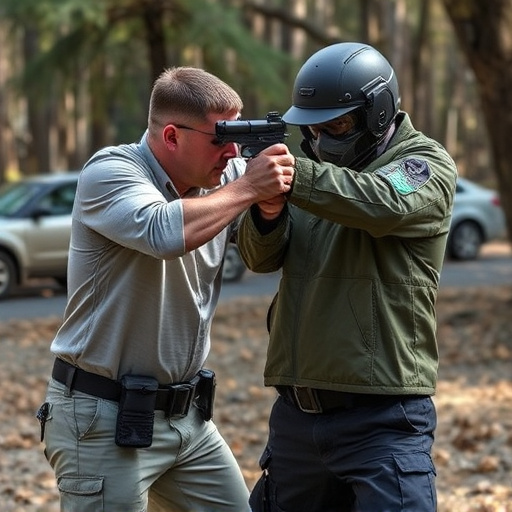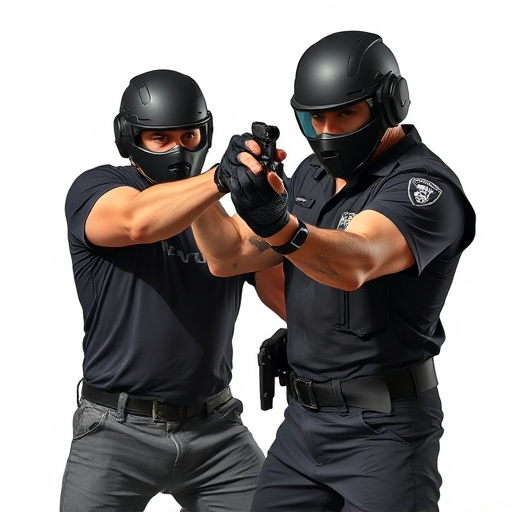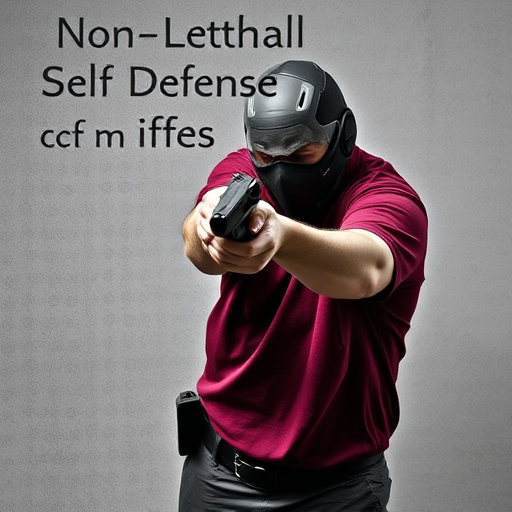Civilian Taser Ownership: State Laws and Temporary Paralysis Implications
In many US states, civilian ownership of stun guns (Tasers) is heavily regulated to prevent misuse a…….
In many US states, civilian ownership of stun guns (Tasers) is heavily regulated to prevent misuse and accidental discharge, which can cause temporary paralysis. Laws vary widely, including age restrictions, permit/license requirements, and mandatory training. Some states restrict Taser ownership to law enforcement and security personnel, while others allow limited civilian ownership under strict conditions. The regulation aims to balance personal safety with public concerns, ensuring responsible self-defense while preventing misuse of devices causing temporary paralysis from stun guns. Misuse can lead to civil lawsuits and criminal charges, emphasizing the need for understanding local regulations and personal responsibility.
“Uncovering the legal landscape of civilian Taser ownership is crucial in today’s discussion about personal safety and self-defense. This article, ‘Civilian Taser Ownership Requirements: State Laws,’ delves into the state-by-state regulations governing stun gun possession. From understanding the legal perspective to exploring eligibility criteria, we navigate the rules and restrictions. Additionally, we examine the implications of temporary paralysis from stun guns, shedding light on rights and responsibilities. By the end, readers will have a comprehensive guide to civilian Taser ownership.”
- Understanding Civilian Taser Ownership: A Legal Perspective
- State-by-State Regulations: Unraveling the Rules and Restrictions
- Eligibility Criteria for Owning a Stun Gun
- Temporary Paralysis and Its Legal Implications: Rights and Responsibilities
Understanding Civilian Taser Ownership: A Legal Perspective

In many jurisdictions, civilian ownership of stun guns, often referred to as Tasers, is governed by strict state laws. These laws vary widely across the country, determining who can legally possess and carry such devices. Understanding these regulations is essential for anyone considering purchasing a Taser for personal protection. The primary concern driving these laws is public safety, with many states restricting access to prevent misuse or accidental discharge, which could result in temporary paralysis from stun guns.
State legislation often sets age restrictions, requires permits or licenses, and mandates specific training for individuals seeking to own Tasers. Some states allow only law enforcement agencies and security personnel to possess these devices, while others permit limited civilian ownership with stringent conditions. The legal framework aims to ensure that citizens are well-informed and trained to handle such powerful tools responsibly, minimising the risks associated with temporary paralysis from stun guns.
State-by-State Regulations: Unraveling the Rules and Restrictions

In the United States, the ownership and use of stun guns, commonly known as tasers, are governed by a patchwork of state laws, creating a varied landscape of regulations across different states. Each state has its own set of rules and restrictions regarding who can possess these devices, how they can be used, and under what circumstances. Understanding these state-by-state variations is crucial for individuals considering the acquisition of a stun gun for personal protection.
The laws cover various aspects, including background checks, waiting periods, age restrictions, and limitations on carrying stun guns in public places. Some states allow anyone over a certain age to own a taser without a license, while others require registration or permits. Additionally, specific regulations might address the use of temporary paralysis from stun guns, delineating safe application methods and who can employ them legally. These rules are designed to balance personal safety with public safety concerns, ensuring that citizens have access to legal means of self-defense while preventing misuse.
Eligibility Criteria for Owning a Stun Gun

In most states, individuals looking to purchase a stun gun, or taser, must meet certain eligibility criteria. These requirements vary slightly from one state to another but often include age restrictions, background checks, and training mandates. Typically, one must be at least 18 years old to own a stun device, though some states allow younger individuals to possess them under specific circumstances, such as for self-defense purposes while on their property or under parental supervision.
Several states demand a comprehensive background check, including checks against criminal records and history of mental health issues, to ensure that the weapon is not falling into the wrong hands. Moreover, many jurisdictions necessitate some level of training or education on stun gun safety and usage before granting permission for ownership. This measure aims to promote responsible use and mitigate risks associated with temporary paralysis from stun guns.
Temporary Paralysis and Its Legal Implications: Rights and Responsibilities

The use of stun guns, or tasers, equipped with temporary paralysis capabilities has sparked discussions regarding their legal implications, especially when used by civilians. Temporary paralysis from stun guns refers to the momentary incapacitation of a target, typically lasting for several seconds, aimed at controlling and de-escalating potentially dangerous situations. However, this tactic raises questions about individual rights and responsibilities.
In many jurisdictions, civilian ownership of tasers is regulated, and users must adhere to strict guidelines. While stun guns can be seen as valuable tools for personal safety, their use comes with legal consequences. If used improperly or against individuals who do not pose an immediate threat, it could lead to civil lawsuits and criminal charges, depending on the severity of the injury and local laws. Therefore, prospective owners should thoroughly understand their state’s regulations regarding stun gun usage and bear the responsibility for their actions to avoid potential legal repercussions.
In conclusion, understanding the legal landscape surrounding civilian Taser ownership is essential for those interested in acquiring a stun gun. State laws vary widely regarding eligibility criteria and restrictions on Taser possession, with many states having stringent requirements, especially when it comes to temporary paralysis from stun guns. By navigating these regulations and being aware of one’s rights and responsibilities, individuals can ensure compliance while also benefiting from the self-defense capabilities of a stun gun.


